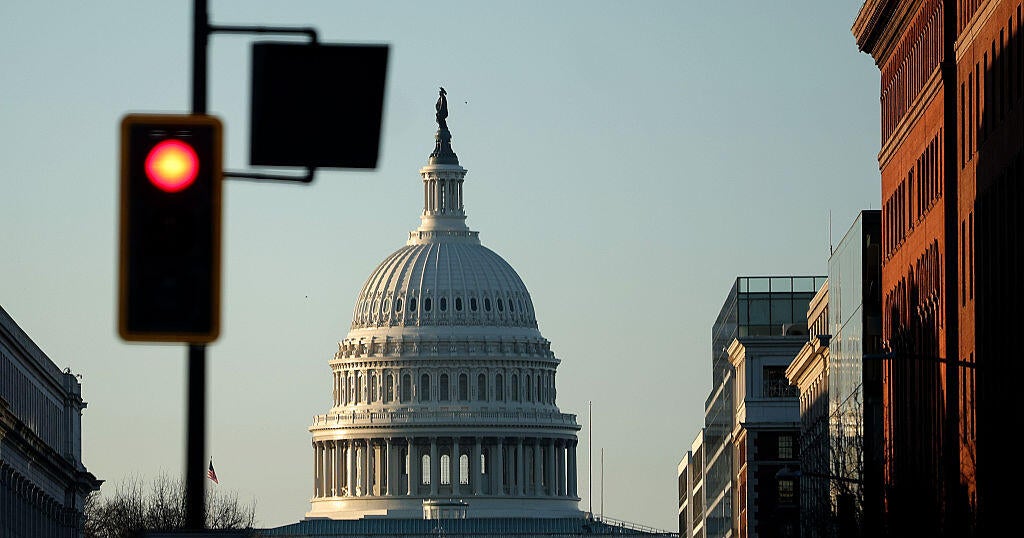Paul Ryan says GOP health-care bill will be refined, improved
Their health care overhaul imperiled from all sides, the White House and top House Republicans acknowledged Wednesday they would make changes to the legislation in hopes of nailing down votes and pushing the party’s showpiece legislation through the chamber soon. Even so, a top Senate Republican said the measure lacks enough support to pass in the Senate.
House Speaker Paul Ryan, R-Wis., declined to commit to bringing the measure to the House floor next week, a fresh indication of uncertainty. Republican leaders have repeatedly said that was their schedule, but opposition mushroomed after a congressional report concluded this week that the measure would strip 24 million people of coverage in a decade.
Ryan told reporters that GOP leaders could now “incorporate feedback to improve this bill, to refine this bill,” reflecting an urgency to buttress support.
The measure would strike down much of former President Barack Obama’s 2010 overhaul and reduce the federal role, including financing, for health care consumers and is opposed uniformly by Democrats.
“We’re going to arbitrate, we’re all going to get together, we’re going to get something done,” President Donald Trump promised a crowd at a rally in Nashville.
At an all-hands meeting Wednesday evening of House GOP lawmakers, Vice President Mike Pence and party leaders urged their rank-and-file to unite behind the legislation.
“’It’s our job to get it out of here and get it to the Senate,’” Pence told the Republicans, according to Rep. Dennis Ross, R-Fla. That would let Trump pressure “Democrats in these red states to come on board,’” Ross said, referring to Republican-leaning states where Democratic senators face re-election next year.
Health secretary Tom Price was using phone calls to lobby Republican governors, some of whom - with home-state GOP members of Congress - oppose the bill’s phase out of Obama’s expansion of Medicaid to 11 million additional lower-income Americans.
House Majority Leader Kevin McCarthy also released a statement Wednesday night announcing several additional health-care bills that the House will begin considering next week, including a measure that would allow insurers to sell across state lines. These other bills are what Ryan has referred to as “phase three” in the GOP’s health care plan. They are separate from the American Healthcare Act and will not be considered under the budgetary reconciliation process. This means that in addition to the 52 GOP votes in the Senate, these phase-three measures will also need 8 Democrats.
Amid the maneuvering, a government report said more than 12 million people have signed up for coverage this year under the very statute that President Donald Trump and congressional Republicans want to repeal. That figure underscored the potential political impact of the GOP’s next move.
Pence met repeatedly with House Republicans but rebels still abounded. Conservatives were unhappy the measure doesn’t erase enough of Obama’s law while at the other end of the party’s spectrum, moderates were upset the bill would strip millions of health coverage.
“Oh heck, yes,” said one conservative leader, Rep. Jim Jordan, R-Ohio, asked if the GOP legislation needed changes to win his support.
Conservatives want to end Obama’s expansion of Medicaid to 11 million additional low-income people next year, not 2020 as the bill proposes. They say a GOP proposed tax credit to help people pay medical costs is too generous, and they want to terminate all of Obama’s insurance requirements, including mandatory coverage of specified services like drug counseling.
Underscoring the push-pull problem GOP leaders face in winning votes, moderates feel the tax credits are too stingy, especially for low earners and older people. They oppose accelerating the phaseout of the Medicaid expansion and are unhappy with long-term cuts the measure would inflict on the entire program.
Terminating the Medicaid expansion in 2020 and not 2018 “is sacrosanct to me,” said moderate Rep. Tom MacArthur, R-N.J.
In a new complication, Sen. Charles Grassley, R-Iowa, said the measure lacked the votes to pass in the Senate, where Republicans hold a precarious 52-48 majority. That left House members angry over being asked to take a politically risky vote for legislation likely to be altered.
Moderates “don’t like the idea of taking a vote in the House that may go nowhere in the Senate,” said Rep. Charlie Dent, R-Pa.
The bill would enfeeble Obama’s individual mandate, the requirement that Americans buy coverage, by abolishing the tax fine on violators. It would end subsidies that help low-income people with high insurance premiums the most and replace them with tax credits that are bigger for older people. It would cut Medicaid, repeal the law’s tax increases on higher earning Americans and require 30 percent higher premiums for consumers who let coverage lapse.
GOP support became scarcer when the nonpartisan Congressional Budget Office projected the legislation would push 24 million Americans off coverage in a decade and shift out-of-pocket costs toward lower income, older people. That’ surpasses the 20 million who’ve gained Medicaid or insurance coverage under Obama’s law.
Hundreds of conservative activists rallied outside the Capitol in sub-freezing weather to call on congressional leaders and Trump to abandon the GOP bill and fully repeal Obama’s law. The rally was organized by FreedomWorks, a conservative group backed by the billionaire Koch brothers.
The 2017 government sign-up numbers missed Obama’s target of 13.8 million people. Experts said the figures undercut Republican claims that the health law’s insurance markets are teetering toward collapse.



